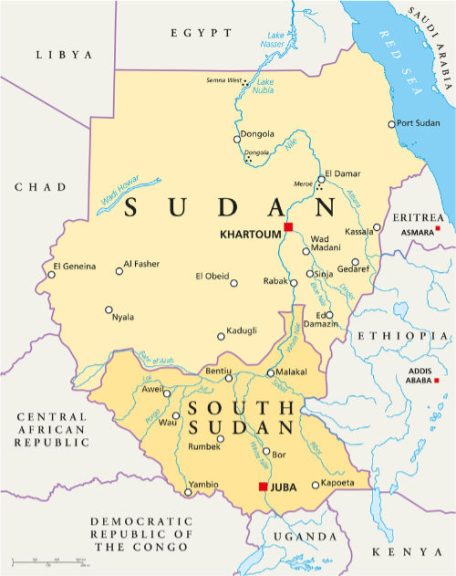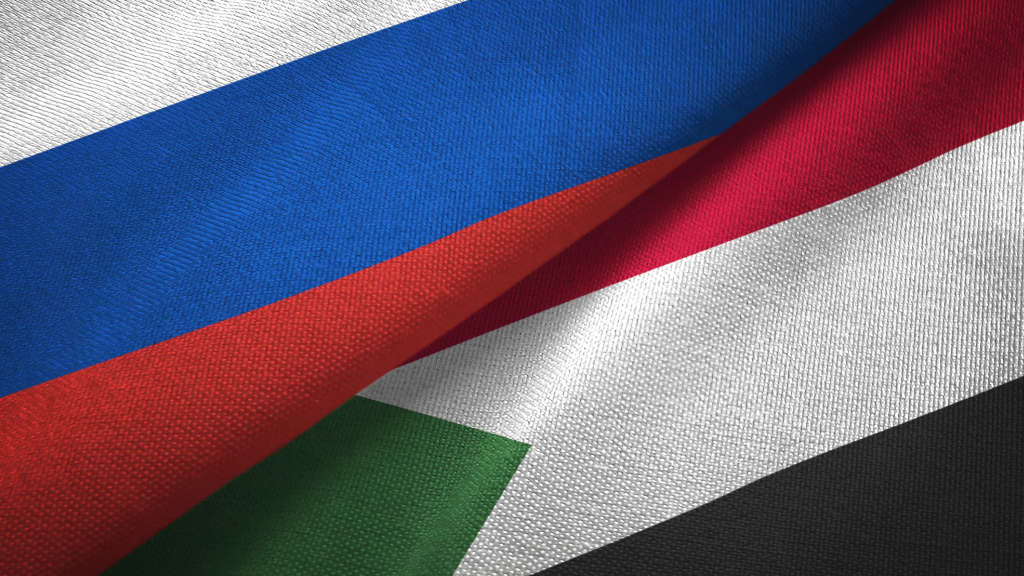Russia’s Foreign Minister, Sergey Lavrov, met with Kamil Idris, the Prime Minister of the Republic of Sudan, on the sidelines of the 80th Session of the UN General Assembly in New York.
The discussions focused primarily on the situation in Sudan amid the ongoing military-political crisis that has persisted since April 2023. The Russian side underscored the urgent need to halt armed hostilities and initiate a post-conflict recovery process, paving the way for nationwide reconciliation.
Part of the Sudanese conflict revolves around decisions as to whether Sudan should be a secular or an Islamic state. The current ruling government, represented by Idris, favors the secular nature of government and prefers freedom of choice in matters of religion in the country.
Various aspects of further strengthening Russian-Sudanese relations were discussed, with particular emphasis on enhancing trade and economic cooperation. Both parties reaffirmed their mutual interest in maintaining active foreign policy coordination within the UN and other international platforms.
On September 24, at a meeting of the intergovernmental commission on trade and economic cooperation, Russia and Sudan signed a memorandum on joint work in the transport sector, which involves the development of measures to modernize and re-equip railway systems, seaports, and airports and ensure the safety of civil aviation and ship navigation. The central banks of both countries have also agreed to cooperate in the field of training banking specialists.
The agreements come at a critical time for Sudan, currently grappling with the impact of protracted conflict between rival military factions. The fighting has devastated infrastructure, displaced millions of people, and pushed the economy into crisis. However, officials are confident that Russian support could help rebuild essential sectors and restore trade routes disrupted by fighting. The government has also pointed to the deal as a step towards reviving civil aviation and re-establishing Sudan as a regional transport hub.
“Sudan highly appreciates the Russian support. Despite the difficulties the country is currently facing, the political will to further strengthen Russian-Sudanese relations remains unchanged. “We confirm comprehensive cooperation,” said the Minister of Mineral Resources of the Republic of Sudan, Noureddaim Taha.

Sudan has a population of 50 million people with 1,886,068 km2, making it Africa’s third-largest country. It has a GDP (PPP) of US$178 billion and a 2025 forecast growth rate of minus 12%.
Russia and Sudan have been increasing their mutual cooperation in recent years, with Sudan offering Russia the use of its Port Sudan Naval Base on the Red Sea. That agreement is beneficial in several ways for Russia and Sudan, as it provides Russia with a foothold on the Red Sea, obtaining access to the Indian Ocean; it enhances logistical support for various Russian military units in the region; it helps mitigate threats to Russian tankers and vessels in the Red Sea and the Suez Canal zones; and it enhances Russia’s capabilities on the African continent, while elevating Sudan’s standing among neighboring countries and solidifying cooperation with Russia. The port will be used as a naval logistical support center, rather than a full military base on the Red Sea, which is politically less of a problem for Saudi Arabia.

That said, as the port is also used to facilitate energy agreements between Sudanese oil companies and Russia, it has been subjected to drone attacks this year by pro-Ukrainian forces, a warning of wider involvement should Western actors wish to expand the conflict.
In the energy sector, Russia and Sudan cooperate in the hydropower sector. In December last year, it was reported that Sudan was planning to sign several oil exploration and development agreements with Russian companies. In April of this year, the Russian companies Al Rassi International Services and Zarubezhneft signed a memorandum of understanding and cooperation with the Sudanese company Bashayer Oil Pipelines Company (BAPCO) in the field of oilfield services, the Ministry of Energy and Petroleum of Sudan reported.
The new infrastructure agreements reflect Moscow’s wider ambitions on the African continent as it continues to increase its presence in Africa through energy projects, mining concessions, arms cooperation, and financial partnerships, often positioning itself as an alternative to Western powers.
With these new agreements, Russia is expanding its footprint in Sudan and is looking for both economic opportunities and strategic access in the Horn of Africa, a region of growing geopolitical importance. Against that backdrop, Russia’s engagement with Sudan underscores how global powers are competing for influence in Africa through bilateral deals and infrastructure commitments.
Sudanese representatives welcomed the cooperation with Russia, stressing that the partnership could strengthen national development efforts and ease recovery from the current crisis. Russian officials described the agreement as part of a broader push to deepen Africa–Russia relations at a time of shifting international alignments.
In terms of current bilateral trade, the World Bank has not released specific bilateral trade data for Sudan in 2025; however, a World Bank report from late 2024 indicates a widening trade deficit and high import requirements in 2024-2026, driven by ongoing conflict, with a potential gradual recovery in exports and domestic demand from 2025 onwards if the conflict subsides and reconstruction efforts begin. The World Bank also established a transitional office in Addis Ababa in September 2024 to manage engagements in Sudan following the closure of its Khartoum office
Further Reading
Russia, South Sudan Bilateral Relations: 2025 Update

 Русский
Русский













